
Appalachian State University Zoological Collections
Our mission at App State Animal Collections is to maintain a representative collection of local, regional, and global fauna and to act as a resource for biodiversity research and education in western North Carolina. We currently house a great diversity of amphibians, reptiles, mammals, fishes, mollusks, crustaceans, and insects ranging from Watauga County to around the world.
Affiliated Faculty
- Dr. Robert Creed - Ichtyology and Invertebrate Zoology
- Dr. Jennifer Geib - Hymenoptera
- Dr. Lynn Siefferman - Ornithology and Herpetology
- Dr. Shea Tuberty
- Dr. R. Wayne Van Devender - Curator Emeritus
- Dr. Ray Williams - Entomology
About the Collections
Why are natural history collections important?
The world is filled with a diverse assortment of organisms. Though scientists have been describing species for hundreds of years, we have hardly scratched the surface of the immense diversity of plants, animals, fungi, and bacteria that exist on our planet. Keeping extensive collections of biological specimen allows scientists to study the earth's rich diversity of life. From these collections scientists have learned nearly everything that we know about species' diversity, morphology, anatomy, genetics, and distributions. Additionally, collections provide a window into the past enabling the study of changes in species diversity, body condition, and distribution over time allowing scientists to understand consequences of human impacts, climate change, and species invasions on biological communities.
 | 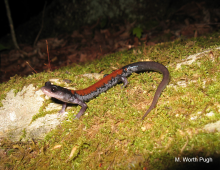 |  |
Why study biodiversity?
Biodiversity typically refers to the number of different organisms present in a community or ecosystem. As part of these living systems, humans are dependent on the diversity and richness of organisms that provide ecosystem services such as clean air, water, food, medicines, and shelter. Depletion, degradation, or reduction of these resources would result in a depreciation of the quality of life for human populations. Therefore, it is paramount that we understand the diversity of our world and how we may be impacting the longevity of its resources.
 | 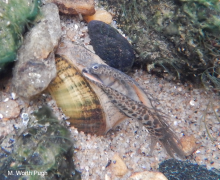 |  |
Zoological Holdings
Vertebrates
- > 28,000 cataloged specimen and growing
- Amphibians - 35 Families; 121 Genera
- Reptiles - Inventory in progress
- Mammals - 22 Orders; 64 Families
- Fish - Inventory in progress
Invertebrates
- Insects - 18 Orders; 125 Families. Coleoptera inventory in progress.
- Mollusks - > 50 Orders; > 184 Families; > 200 species of freshwater mollusks from SE United States (Unionidae)
Current holdings available by email request. Send requests to either C. Todd Jackson, Collection Manager or Michael Gangloff, Collections Curator.
Zoological Research
Get Involved
The Zoological Collections at App State welcomes volunteers!
Benefits of working with the Zoological Collections:
- Learn taxonomy and anatomy of a variety of animal groups
- Develop organizational and scientific cataloging skills
- Work with both local taxa and exotic specimen from around the world
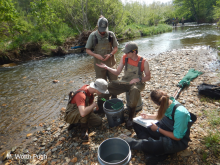 | 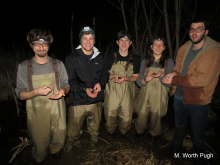 | 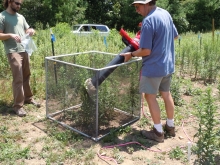 |
If you are interested in, or have questions about, volunteering with the Zoological Collections, reach out to either C. Todd Jackson, Collection Manager or Michael Gangloff, Curator.